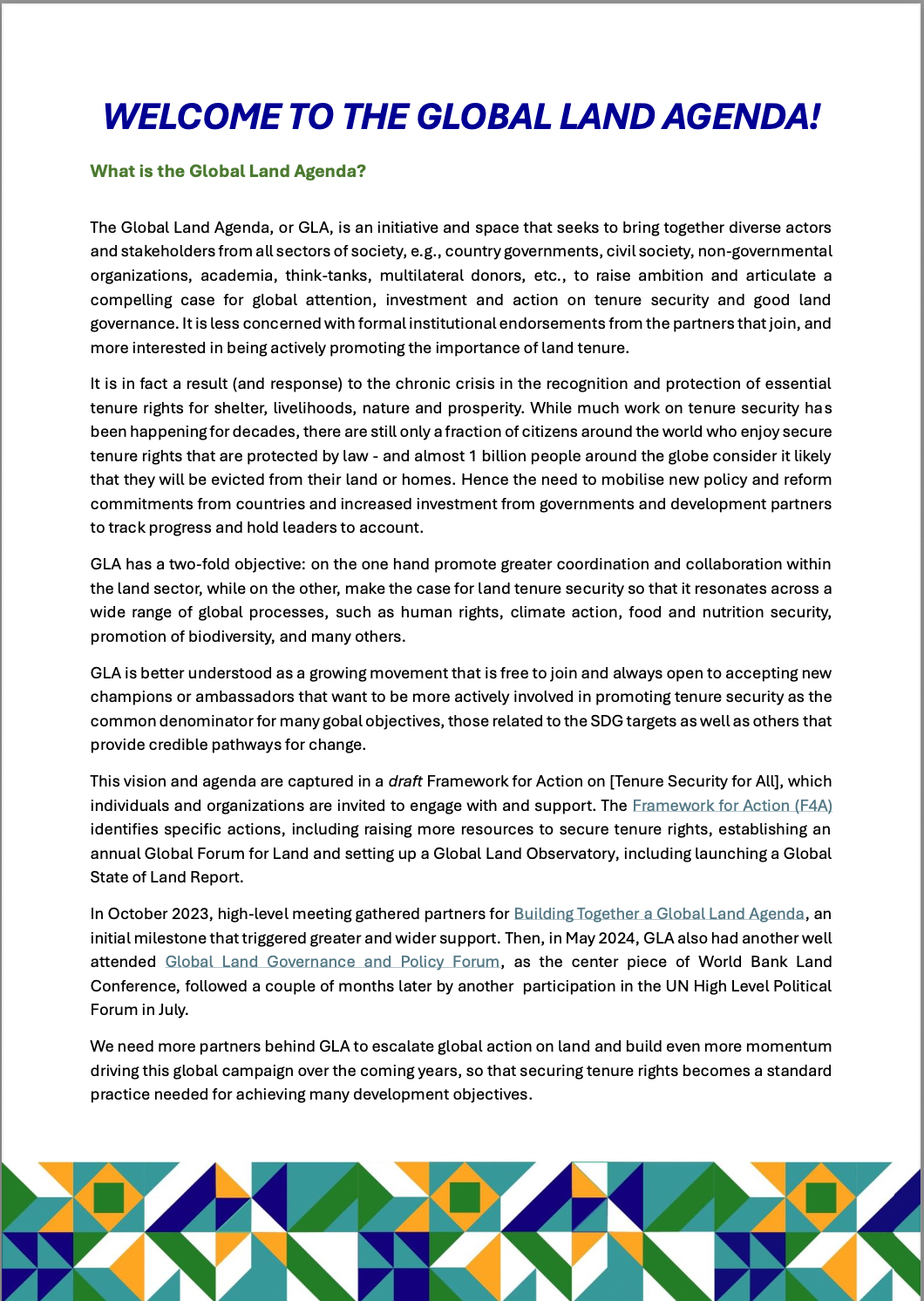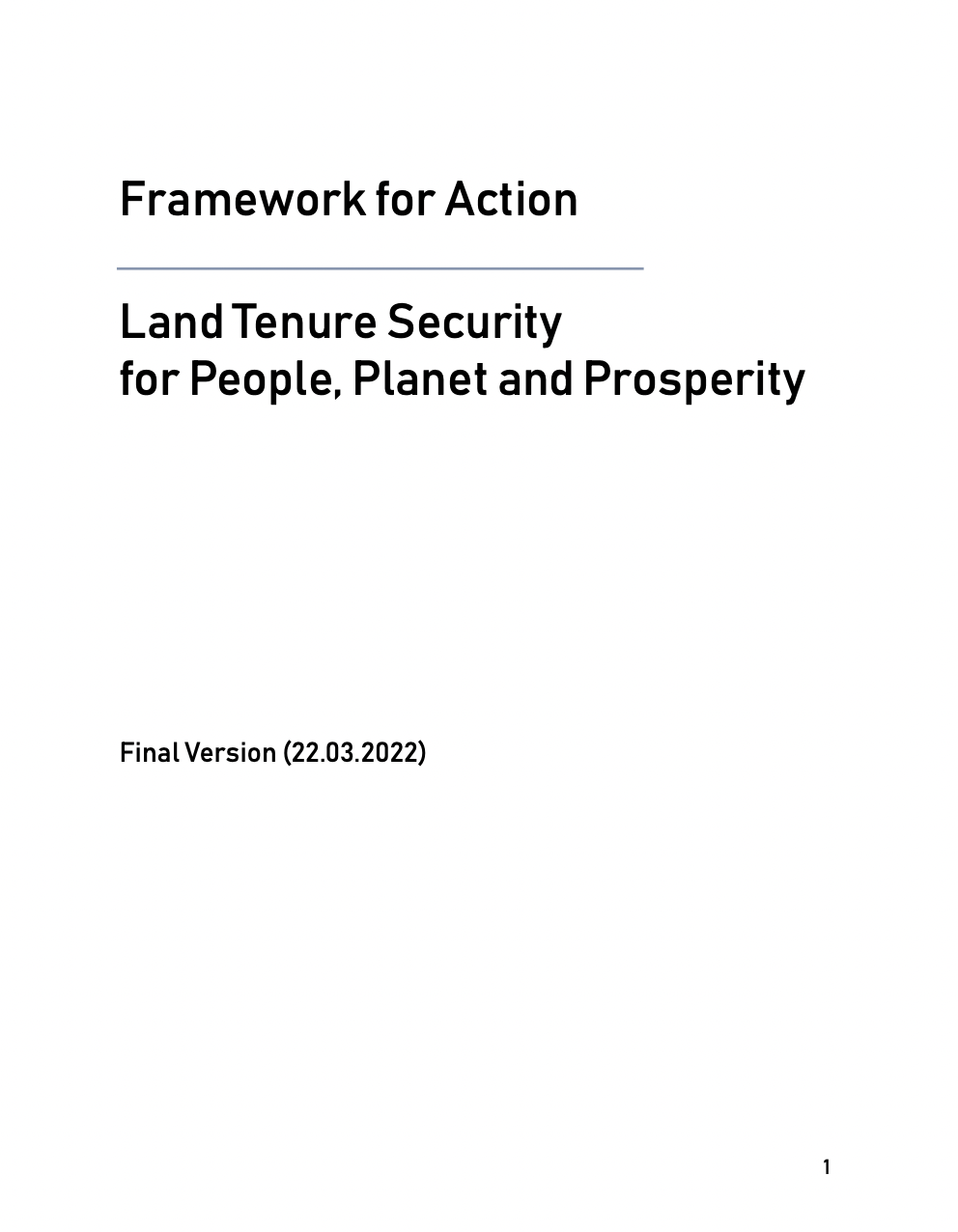In a world grappling with numerous challenges related to climate change, socio-economic issues, and migration, the significance of land cannot be overstated. Land is not just a concern for the land community but for all communities, as it holds the potential to address critical global issues. Recognizing the need for a comprehensive approach to land governance, a global land agenda is being proposed. This blog explores the origins, objectives, and actions required to pave the way for effective land governance on a global scale.
The existing forums and initiatives focused on land governance often suffer from limited inclusivity and biased representation. While some gatherings bring together practitioners, academics, and decision-makers, they fail to include all stakeholders at a global level. This lack of a unified global platform hampers political discussions, impedes commitment-building, and hinders progress towards addressing land-related challenges. To overcome these limitations, a global land agenda is being suggested to create a framework that fosters collaboration and commitment from all relevant stakeholders.
Recognizing the urgency of the matter, a group of about 25 organizations representing civil society, governments, private sector entities, and donors joined forces to discuss the way forward. They acknowledged that time is of the essence, with only seven years remaining to achieve the goals set by the 2030 Agenda. It became evident that more needs to be done to ensure secure land rights for all and to prevent a shortfall in meeting the targets set by the Sustainable Development Goals (SDGs).
To advance the global land agenda, a first draft of a concise action framework was developed and is being circulated for consultation This framework suggests four key actions:
- Mobilizing Political Commitments: Efforts are required to place land on the global, regional, and national agendas. A proposed solution is to organize a global land summit, akin to the UN Food Systems Summit, where governments can make concrete commitments towards land-related issues.
- Establishing a Multi-Stakeholder Forum: An annual or biannual global land forum is crucial for fostering dialogue, strategizing, and monitoring the commitments made during the summit. This forum should include diverse stakeholders and serve as a platform for tracking progress.
- Implementing an Accountability Mechanism: To ensure progress, a global accountability mechanism should be established. This mechanism will leverage the vast amount of data available, including data from the SDGs, to track commitments made by governments during the forum.
- Investing in Land: Adequate funding is essential for the success of the global land agenda. Similar to the commitments made during the Glasgow Climate Summit, efforts should be made to secure financial resources that protect land rights and support local communities.
The initiative has reached a critical juncture. Momentum needs to be generated, funding must be secured, and inclusivity must be assured. Preparatory forums are being planned to engage key actors and gather feedback. The first forum will take place in October,at the Committee on World Food Security (CFS) event. In addition, a high-level, multi-stakeholder event on the sidelines of the CFS will also be organized to promote broader engagement.
The global land agenda initiative represents a significant step toward addressing the challenges associated with land governance. By mobilizing political commitments, establishing inclusive forums, implementing an accountability mechanism, and investing in land, this initiative aims to shape a comprehensive global agenda for land governance. It is crucial for governments, civil society, private sector entities, and donors to come together and actively participate in this endeavor to secure the future of our planet and its invaluable land resources.




